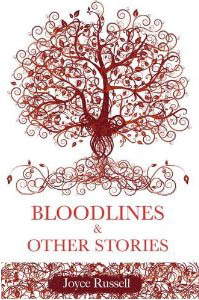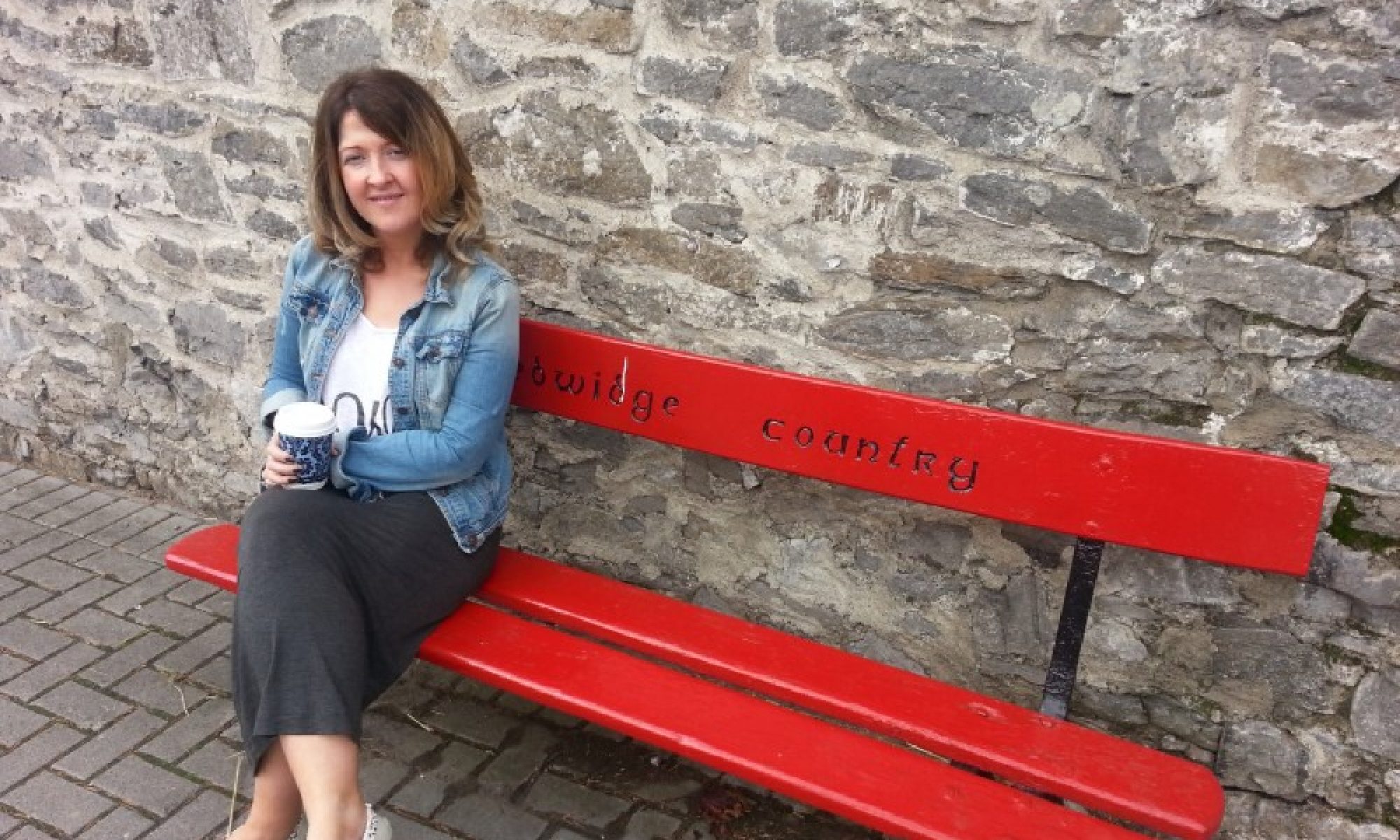Review:Bloodlines by Joyce Russell published by Mercier Press
Joyce Russell released her set of short stories, Bloodlines last year at the Cork International Short Story Festival. She is quite the interesting character; Born in North Yorkshire, a journalist and writer. She is also gardening correspondent with The Southern Star.
 She had been writing stories for over a decade and this is the part that fascinates me most. Stay with me on this one.
She had been writing stories for over a decade and this is the part that fascinates me most. Stay with me on this one.
At the back of the collection, a list of Joyce’ accolades are given. She has been shortlisted or won many prestigious short story competitions. From Fish Publishing, Sean O’ Faoilean, Francis Mac Manus, Bridport Prize and the Real Writers competition.
The collection is called Bloodlines and the themes are unmistakably centered around family, blood connections, maternal, paternal, the child and the I, the innocent and love between all of these things. I am unsure to whether Joyce was working to a collection as she sent stories into magazines or competitions but these themes must have meant everything to her writing life as each story shines clearly with them.
It is wonderful for the reader to have an implicit connection of the themes. Some short story anthologies take more to work out while others have little to connect the writer’s voice and his/her motifs.
But, most strongly what comes out of these tales are the female voice as a child, a teenager and an old woman. Joyce writes mostly from the first person and pulls off the difficult child narrative again and again, without once failing.
Joyce is a lover of nature and this glistens throughout, she is an image maker but a simple one. She does not use demanding vocabulary unless the story demands it.
In Blood Red is a story of a teenage narrator and her mother. The narrator cannot communciate what she needs to her mother. Her mother has a way of dealing with big issues in life, mostly just to ignore.
She puts her hands over her ears or sings when bad news comes on the radio. The twin towers are still standing in her head.
The conflict happens when the narrator gets herself into a trouble that she feels will need an honesty her relationship with her mother does not share.
Some people say that their mother is their best friend, but I know they are wrong…There is no way I could talk to her about anything else. It’s so easy to hide what people don’t want to see.
But, the mother comes good, in the end and deals with the potentially life-wrecking situation in her own way. This way suits the daughter and mother as this is their life and there way of dealing with challenges. The reader will judge but will agree with the mother by the end.
In Walking Backwards, the story reflects on the most important thing in life. This story is about the protagonist, a young girl and her mother. There has been a loss. The father has dies some time ago and there have been changes in the way the protagonist sees her mother and her life. She is now a lonely child that travels on the same bus route every day, avoiding school, avoiding the real problem at home. She ruminates about the last day on earth constantly to the point that the reader may be lead into thinking something morbid is going to happen. Joyce twists the story at a gentle angle and the ending does not seem forced or as if a trick has been played on the reader. It seems natural.
Though, this collection is predominately proud of its maternal and feminine theme, Joyce also features stories that go away from this female theme. In Light, thought and Evelyn, we see the quirky side of Joyce’s style come out. Evelyn works in a restaurant of some sort and she dreams every night of creating the world from scratch, like a deity. In Comparable, identical, One and the Same, we look into a world of isolation in the school yard and meet a girl who has a father she is ashamed of. She is aware of herself and her family and their difference in the world. She is sitting in the car, ready to go into school, her father lies snoring beside her. A universal theme of cliques and isolation is dealt with in a light and speedy way as she looks out and observes the girls going into school. We see the awfulness of those girls who
wear trainers. Some have blank, clonky shoes with fat heels. She knows about sets from maths. the clonkies are a set. The trainers are a much bigger set. the two don’t overlap.
Lilli has it figured out quickly and the story ends as gracefully as she does.
The stand out story, personally, is Changes of Light. A story about a piece of land, like every good Irish short story! A daughter and her father look over the land and house that she is about to buy. This is where Joyce’s strength is shown. We see the landscape through each character’s eyes.
I knew he was seeing small steep fields where a sheep could break a leg. I could see his gaze scouring for topsoil, trying to spot one small place where a hayfield might grown.
We hear what they are thinking and feel inclined to take sides, we empathise.
I wanted my father to see what I saw. I wanted him to fall in love with the high clouds and the sweet taste of the pure air as it entered his lungs.
Good story telling needs to get the reader to feel and connect with their characters and in Changes Of Light, this is done without sentimentality.
There are sixteen well crafted stories here, blending the full spectrum of emotions and feelings that come with being part of a family or a parent. This is a collection that will not age and will stand up well to time, binding the generations together.
You can buy Bloodlines from excellent bookshops, Mercier Press directly or from amazon a ebook or paper.

